
Articles by Nepal
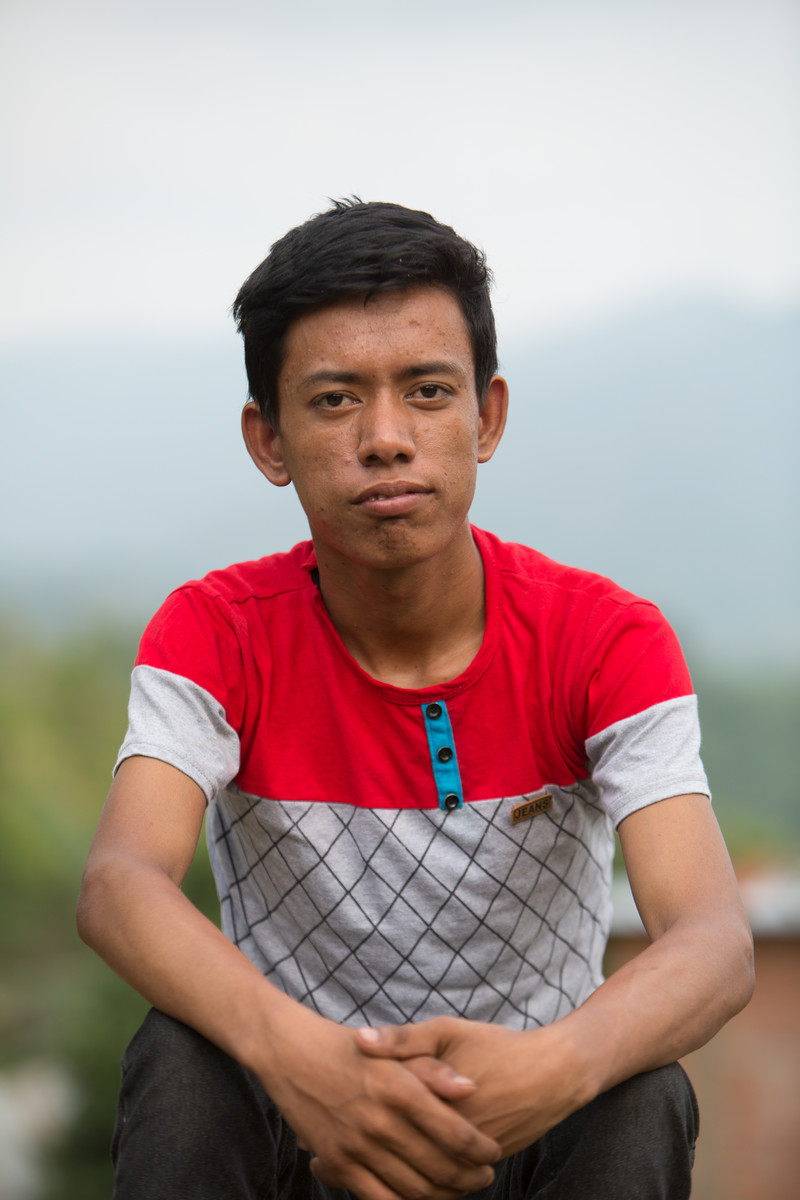
The college student using music to tackle HIV stigma
Compared to many developing countries, HIV prevalence in Nepal is low. Yet there are deep and complex problems around HIV. Stigma remains a huge problem. People living with HIV say they have faced enormous discrimination, including being ostracized by their communities, bullied at school and work, and exposed to insults and even violence. HIV services and support are central to the work of the Family Planning Association of Nepal (FPAN). Its staff and volunteers run services around the country, providing HIV counselling, education on prevention and treatment, and community home-based care services. People living with HIV are at the forefront of this work: FPAN employs thousands of community home-based care mobilisers who are themselves HIV-positive, meaning they are able to provide people with clear, sensitive and empathetic support that draws on their own experiences. Photography © IPPF/Jon Spaull Read Milan's story and watch the video

Meet the college student who uses his music to battle the stigma surrounding HIV
Milan Khadka was just ten years old when he lost both his parents to HIV. “When I lost my parents, I used to feel so alone, like I didn’t have anyone in the world,” he says. “Whenever I saw other children getting love from others, I used to feel that I also might get that kind of love if I hadn’t lost my parents.” Like thousands of Nepali children, Milan’s parents left Nepal for India in search of work. Milan grew up in India until he was ten, when his mother died of AIDS-related causes. The family then returned to Nepal, but just eight months later, his father also died, and Milan was left in the care of his grandmother. “After I lost my parents, I went for VCT [voluntary counselling and testing] to check if I had HIV in my body,” Milan says. “After I was diagnosed as HIV positive, slowly all the people in the area found out about my status and there was so much discrimination. My friends at school didn’t want to sit with me and they humiliated and bullied me,” he says. “At home, I had a separate sleeping area and sleeping materials, separate dishes and a separate comb for my hair. I had to sleep alone.” Things began to improve for Milan when he met a local woman called Lakshmi Kunwar. After discovering she was HIV-positive, Lakshmi had dedicated her life to helping people living with HIV in Palpa, working as a community home-based care mobiliser for the Family Planning Association of Nepal (FPAN) and other organisations. Struck by the plight of this small, orphaned boy, Lakshmi spoke to Milan’s family and teachers, who in turn spoke to his school mates. “After she spoke to my teachers, they started to support me,” Milan says. “And after getting information about HIV, my school friends started to like me and share things with me. And they said: ‘Milan has no one in this world, so we are the ones who must be with him. Who knows that what happened to him might not happen to us?” Lakshmi mentored him through school and college, encouraging him in his schoolwork. “Lakshmi is more than my mother,” he says. “My mother only gave birth to me but Lakshmi has looked after me all this time. Even if my mother was alive today, she might not do all the things for me that Lakshmi has done.” Milan went on to become a grade A student, regularly coming top of his class and leaving school with flying colours. Today, twenty-one-year-old Milan lives a busy and fulfilling life, juggling his college studies, his work as a community home-based care (CHBC) mobiliser for FPAN and a burgeoning music career. When not studying for a Bachelor’s of education at university in Tansen, he works as a CHBC mobiliser for FPAN, visiting villages in the area to raise awareness about how to prevent and treat HIV, and to distribute contraception. He also offers support to children living with HIV, explaining to them how he lost his parents and faced discrimination but now leads a happy and successful life. “There are 40 children in this area living with HIV,” he says. “I talk to them, collect information from them and help them get the support they need. And I tell them: ‘If I had given up at that time, I would not be like this now. So you also shouldn’t give up, and you have to live your life.” Watch Milan's story below:
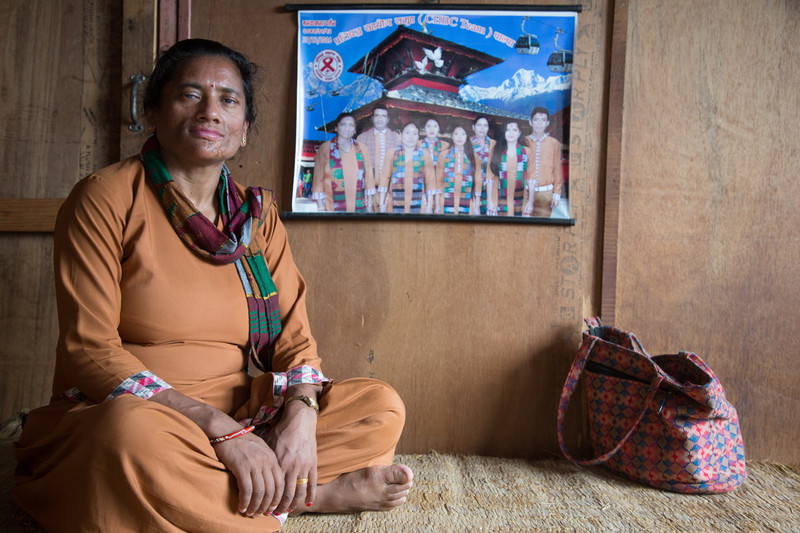
"I said to myself: I will live and I will let others living with HIV live"
Lakshmi Kunwar married young, at the age of 17. Shortly afterwards, Lakshmi’s husband, who worked as a migrant labourer in India, was diagnosed with HIV and died. “At that time, I was completely unaware of HIV,” Lakshmi says. “My husband had information that if someone is diagnosed with HIV, they will die very soon. So after he was diagnosed, he didn’t eat anything and he became very ill and after six months he died. He gave up.” Lakshmi contracted HIV too, and the early years of living with it were arduous. “It was a huge burden,” she says. “I didn’t want to eat anything so I ate very little. My weight at the time was 44 kilograms. I had different infections in my skin and allergies in her body. It was really a difficult time for me. … I was just waiting for my death. I got support from my home and in-laws but my neighbours started to discriminate against me – like they said HIV may transfer via different insects and parasites like lice.” Dedicating her life to help others Lakshmi’s life began to improve when she came across an organisation in Palpa that offered support to people living with HIV (PLHIV). “They told me that there is medicine for PLHIV which will prolong our lives,” she explains. “They took me to Kathmandu, where I got training and information on HIV and I started taking ARVs [antiretroviral drugs].” In Kathmandu Lakshmi decided that she would dedicate the rest of her life to supporting people living with HIV. “I made a plan that I would come back home [to Palpa], disclose my status and then do social work with other people living with HIV, so that they too may have hope to live. I said to myself: I will live and I will let others living with HIV live”. Stories Read more stories about our work with people living with HIV
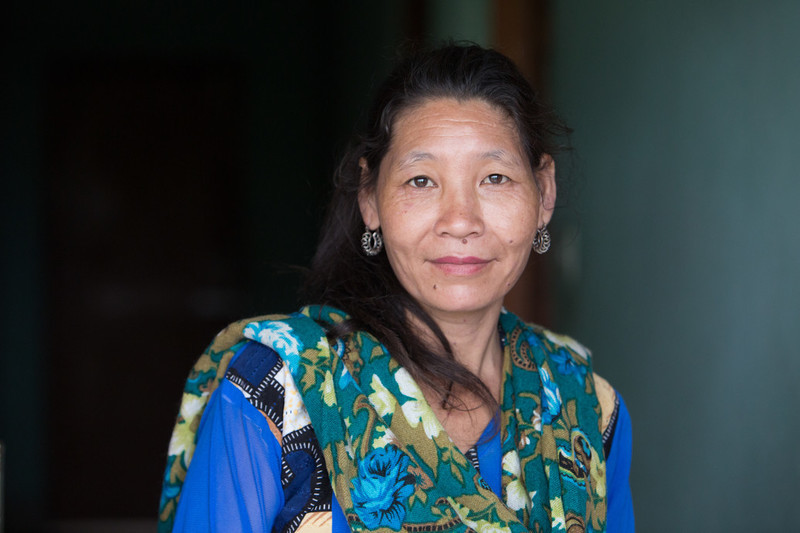
“Attitudes of younger people to HIV are not changing fast"
“When I was 14, I was trafficked to India,” says 35-year-old Lakshmi Lama. “I was made unconscious and was taken to Mumbai. When I woke up, I didn’t even know that I had been trafficked, I didn’t know where I was.” Every year, thousands of Nepali women and girls are trafficked to India, some lured with the promise of domestic work only to find themselves in brothels or working as sex slaves. The visa-free border with India means the actual number of women and girls trafficked from Nepal is likely to be much higher. The earthquake of April 2015 also led to a surge in trafficking: women and girls living in tents or temporary housing, and young orphaned children were particularly vulnerable to traffickers. “I was in Mumbai for three years,” says Lakshmi. “Then I managed to send letters and photographs to my parents and eventually they came to Mumbai and helped rescue me from that place". During her time in India, Lakshmi contracted HIV. Life after her diagnosis was tough, Lakshmi explains. “When I was diagnosed with HIV, people used to discriminate saying, “you’ve got HIV and it might transfer to us so don’t come to our home, don’t touch us,’” she says. “It’s very challenging for people living with HIV in Nepal. People really suffer.” Today, Lakshmi lives in Banepa, a busy town around 25 kilometres east of Kathmandu. Things began to improve for her, she says, when she started attending HIV awareness classes run by Family Planning Association of Nepal (FPAN). Eventually she herself trained as an FPAN peer educator, and she now works hard visiting communities in Kavre, raising awareness about HIV prevention and treatment, and bringing people together to tackle stigma around the virus. The government needs to do far more to tackle HIV stigma in Nepal, particularly at village level, Lakshmi says, “Attitudes of younger people to HIV are not changing fast. People still say to me: ‘you have HIV, you may die soon’. There is so much stigma and discrimination in this community.” Stories Read more stories about our work with people living with HIV
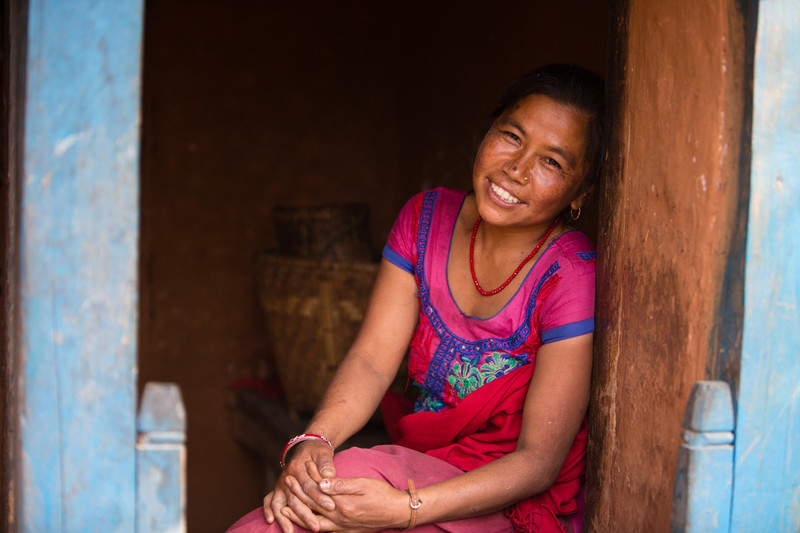
'My neighbours used to discriminate against me and I suffered violence at the hands of my community'
"My husband used to work in India, and when he came back, he got ill and died," says Durga Thame. "We didn’t know that he was HIV-positive, but then then later my daughter got sick with typhoid and went to hospital and was diagnosed with HIV and died, and then I was tested and was found positive." Her story is tragic, but one all too familiar for the women living in this region. Men often travel to India in search of work, where they contract HIV and upon their return infect their wives. For Durga, the death of her husband and daughter and her own HIV positive diagnosis threw her into despair. "My neighbours used to discriminate against me … and I suffered violence at the hands of my community. Everybody used to say that they couldn’t eat whatever I cooked because they might get HIV." Then Durga heard about HIV education classes run by the Palpa branch of the Family Planning Association of Nepal (FPAN), a short bus journey up the road in Tansen, the capital of Palpa. "At those meetings, I got information about HIV," she says. "When I came back to my village, I began telling my neighbours about HIV. They came to know the facts and they realised it was a myth that HIV could be transferred by sharing food. Then they began treating me well." FPAN ran nutrition, hygiene, sanitation and livelihood classes that helped Durga turn the fortunes of her small homestead around. Durga sells goats and hens, and with these earnings supports her family – her father-in-law and her surviving daughter, who she says has not yet been tested for HIV. "I want to educate my daughter," she says. "I really hope I can provide a better education for her." Stories Read more stories about our work with people living with HIV
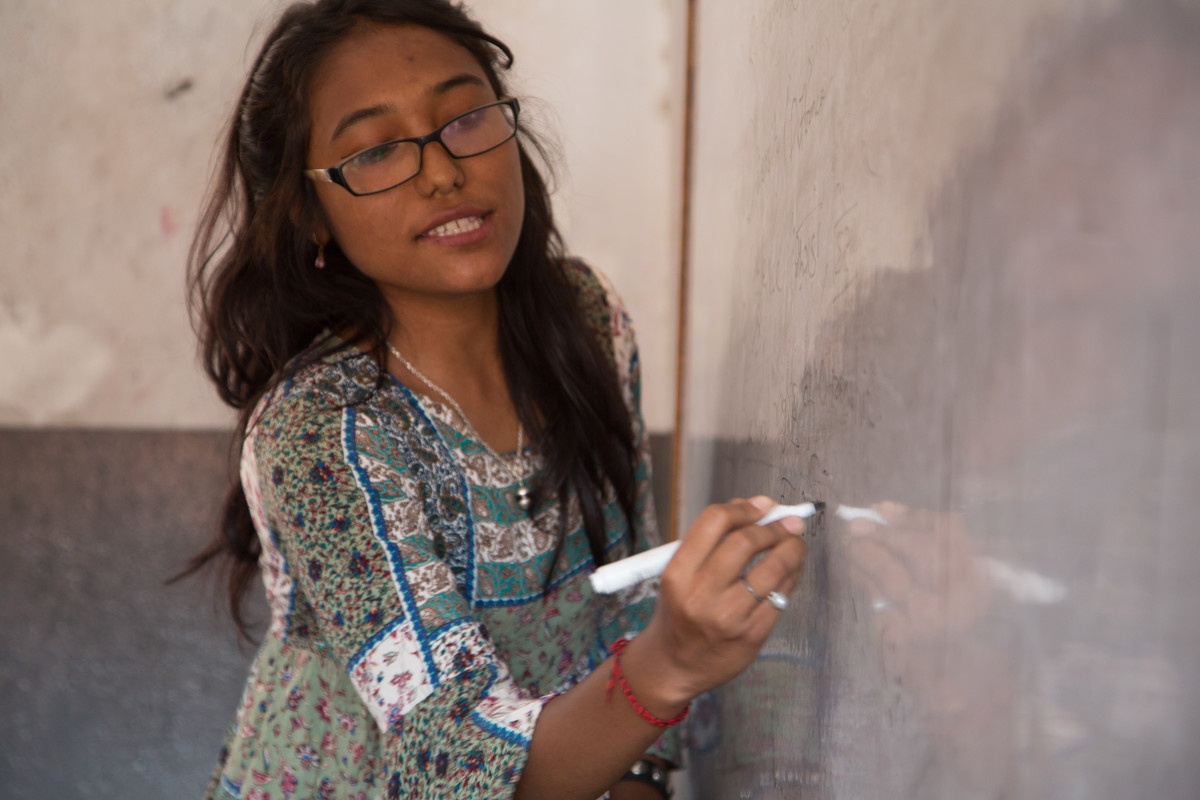
Comprehensive Sexuality Education classes are slowly becoming a part of the curriculum in Nepal
Through an open window in a large red brick school at the eastern gate of the ancient city of Bhaktapur, a short drive from Kathmandu, the voices of children can be heard. They are deep in conversation with the young woman running the class, their fast Nepali broken by the occasional English phrase: “sexual rights … family planning … contraception.” Every Friday, this group of young teenagers meet for a ‘comprehensive sexuality education’ (CSE) class – a space where youngsters come together to talk about adolescence, menstruation, safe sex, HIV and family planning. Not overlooking young people In a deeply conservative and patriarchal culture like Nepal’s, these classes are often the only place where children can talk about these issues openly with an adult. But until very recently, no such classes existed: the fact that they are taught at all is partly down to the efforts of FPAN, which lobbied the government hard to get CSE on the curriculum. Unlike many family planning organisations, FPAN doesn’t overlook the group of people who will shape Nepal in years to come: its young people. Young people are at the heart of its efforts to spread awareness and knowledge about family planning – both by getting into schools and out into communities to talk to young people, and employing youth volunteers to run these activities. The discussion today is chaired by Sumi Kharbuja, a 20-year-old volunteer for FPAN. “When I flash back to my days as a schoolgirl, I was not getting any of this kind of information,” Sumi says. “It’s very important for young people to know about these issues.” “We are the first NGO who work with the young people,” says FPAN President Amu Singh Sijapati. “Now there are a lot of INGOs and NGOs [in Nepal] working with the young people but Family Planning Association of Nepal was the first.” “We learn about changes in adolescence – changes in height, age, weight, physical and mental changes,” explains 14-year-old Misma Koraila, a pupil at Polestar Institute Secondary English Boarding School in Palpa, western Nepal. “We learn about the sensible age to get married … and that it is important to be responsible parents.” Empathising and connecting Classes are run by youth volunteers – the idea being that they are closer to school children in age and experience, and so more able to empathise and connect with their experience. The volunteers are trained to have honest, open discussions with young people about processes like menstruation and sex – issues that are often shrouded in secrecy and damaging misconceptions. “The main challenge is to break the ice … to break the barriers that society has [imposed],” says FPAN volunteer Jayshree Sharma. “Generally people understand sex as physical intercourse. I tell them about sex in a broader way, not just intercourse. And then they realise the importance of sexuality education.” “At first, the students were very shy but we said ‘speak up, speak up: it’s a matter than everyone should know about,” says Sulana Rajbhandari, another volunteer. “‘Menstruation it’s a natural process that your mother and sister will have been through,’ [we tell them].” FPAN also runs youth-friendly centres. These are a “platform for people to come and discuss these issues openly: they feel comfortable within these four walls,” says Sumi Kharbuja. Those who seek out information and take classes go on to become figures through whom others can find out about sexuality education. “In that way, knowledge is spreading – from one to two and two to four, it’s multiplying.”
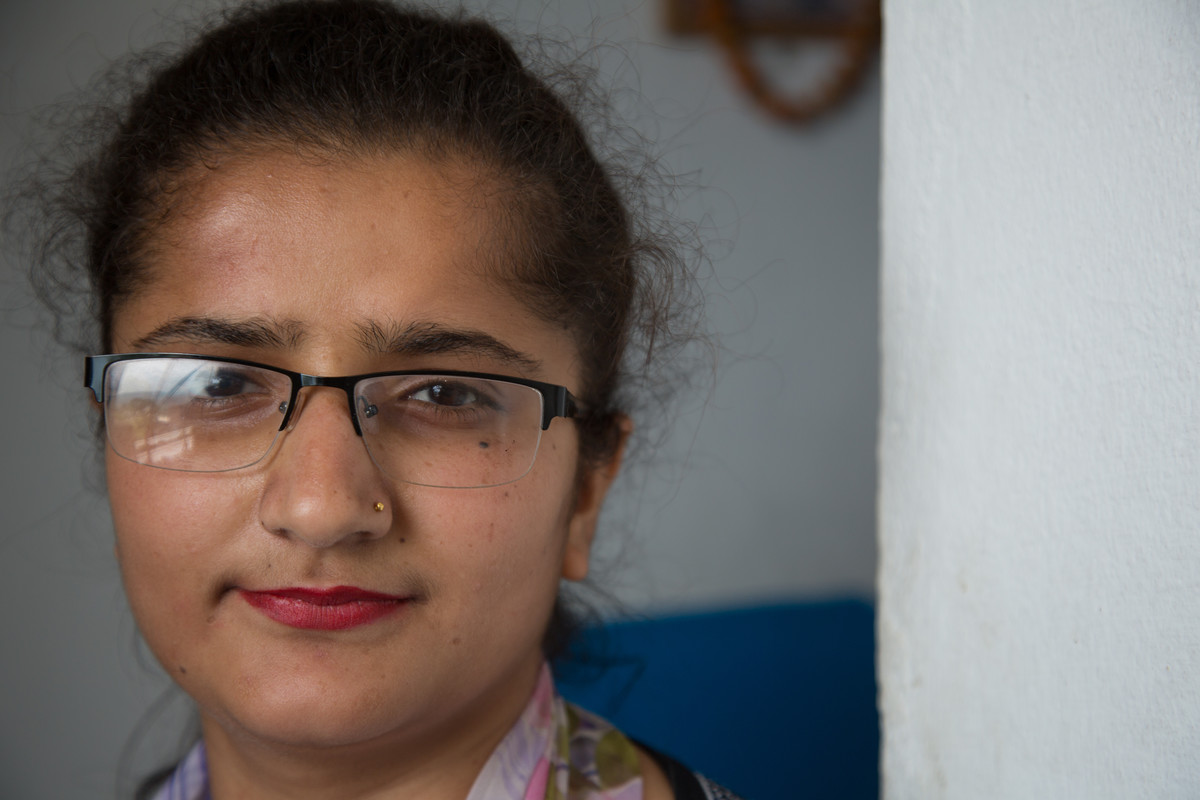
How youth volunteers are leading the conversation on HIV with young people in Nepal
Mala Neupane is just 18 years old, but is already an experienced volunteer for the Family Planning Association of Nepal (FPAN). Mala lives in Tansen, the hillside capital of Palpa, a region of rolling hills, pine forests and lush terraced fields in western Nepal. She works as a community home-based care mobiliser focusing on HIV: her job involves travelling to villages around Tansen to provide people with information about HIV and contraception. “Before, the community had very little knowledge regarding HIV and there used to be so much stigma and discrimination,” she says. “But later, when the Community Health Based Carers (CHBCs) started working in those communities, they had more knowledge and less stigma.” The youth of the volunteers proved an effective tool during their conversations with villagers. “At first, when they talked to people about family planning, they were not receptive: they felt resistance to using those devices,” Mala explains. “The CHBCs said to them: ‘young people like us are doing this kind of work, so why are you feeling such hesitation?’ After talking with them, they became ready to use contraceptives.” Her age is also important for connecting with young people, in a society of rapid change, she says. “Because we are young, we may know more about what young people’s needs and wants are. We can talk to young people about what family planning methods might be suitable for them, and what the options are.” “Young people’s involvement [in FPAN programmes] is very important to helping out young people like us.” It’s a simple message, but one reaping rich rewards for the lives and wellbeing of people in Palpa.
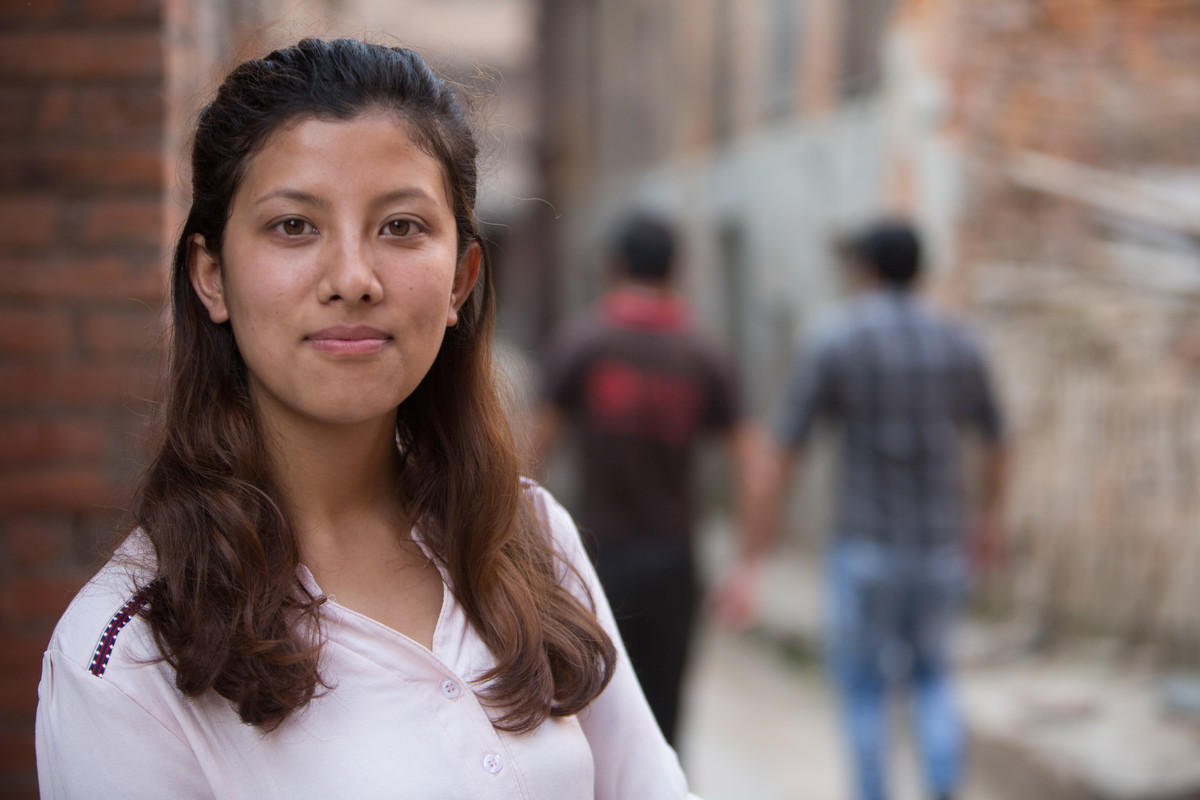
"Girls in rural areas often face more problems than girls in the city"
“Girls in rural areas often face more problems than girls in the city,” says 23-year-old Sajana Kergi. “For example, when they’re menstruating they might have to stay at home and not touch any kitchen materials, or have to drop school. “It varies from family to family, but generally the more traditional and superstitious a family is, the more problems a girl will have.” For the past two years, Sajana has been volunteering as a peer educator and mentor for the Family Planning Association of Nepal (FPAN), since hearing about the programme on Facebook. After an orientation and training programme, she visited different rural schools to give girls training on menstruation management. She now runs classes in schools in and around Bhaktapur. The classes aim to create a relaxed environment for young people to talk and learn about sexual health and rights. This fills a major gap in their learning and knowledge, Sajana says. “At school, these subjects are in the curriculum, but teachers skip these lessons and don’t talk about these issues openly,” she explains. “The teachers don’t create a comfortable environment, and this makes students hesitant to talk about these issues, so there’s no proper knowledge.” FPAN classes are an opportunity for young people to speak openly about sexual health and sexuality therefore are vital.
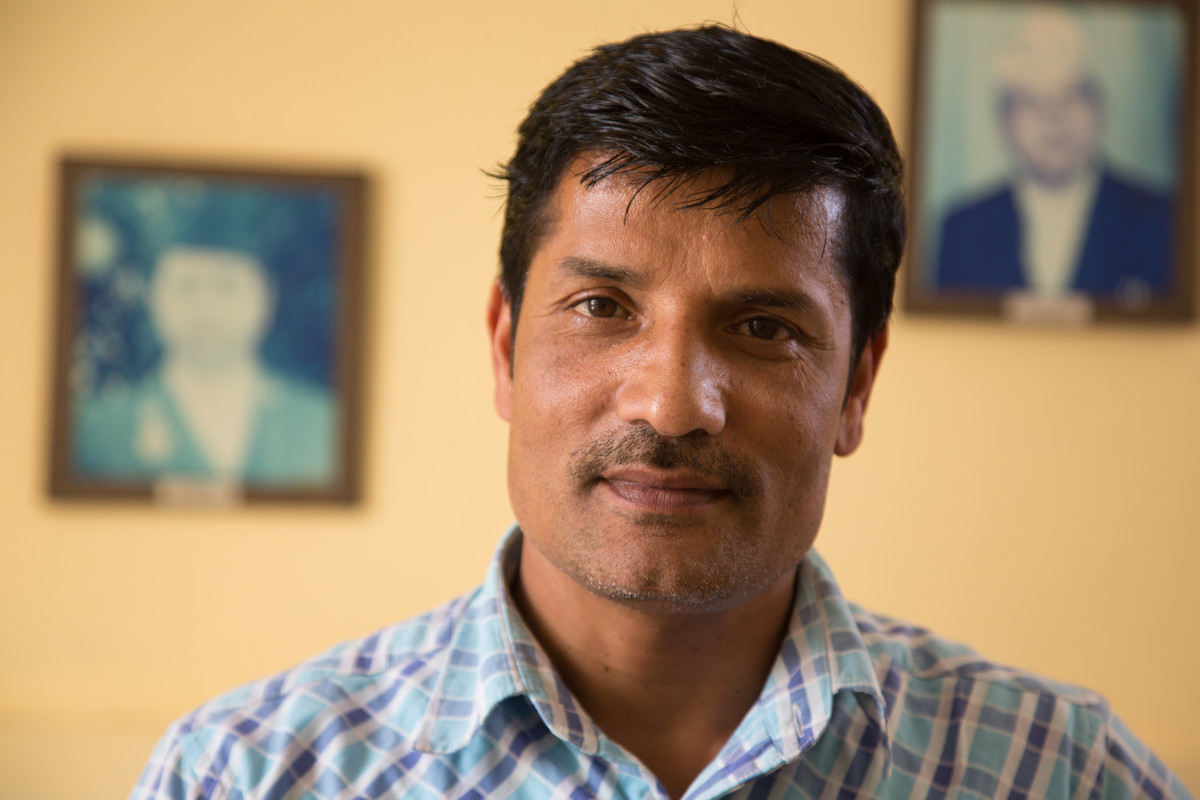
How Family Planning Association of Nepal Youth programmes are saving teens on the brink of suicide
“One time, a sixteen-year-old girl came to see us with an unwanted pregnancy, on the point of suicide,” says Sharad Kumar Argal. “She had been abused by her family and the baby was the result of incest. She was about to commit suicide.” The girl had never heard of safe abortion, explains Sharad, who works as Kathmandu Valley branch manager for the Family Planning Association of Nepal (FPAN), the country’s leading family planning NGO. “Then, very luckily, she happened to come to our youth-friendly centre. From there, she found out about abortion services and she had an abortion through FPAN. FPAN brought her back from the brink of suicide.” For Sharad, FPAN’s youth programmes are the lifeblood of the organisation. In his twenty years at the organisation, he has seen major changes in family planning law and sexual rights in Nepal, from the legalisation of abortion in 2002, to the introduction of National Family Planning Day in 2014. One of the changes that he talks passionately about is FPAN’s work supporting young people, and the role of youth volunteers in these activities. “If you go back 20 years, even talking to people about family planning and especially condoms was very difficult,” he says. “People were hesitant and didn’t want to hear about that in a public space. That made family planning very difficult: we needed to do home to home visits to make family planning available.” “But now, with the passage of time, this has become much better and easier. These days even our youth peer educators are involved in distributing condoms and pills.” The data underlines this change. “The use of family planning 20 years’ ago was only 20-25 per cent,” Sharad says. “Whereas now, more than 50 per cent have access to family planning services.”
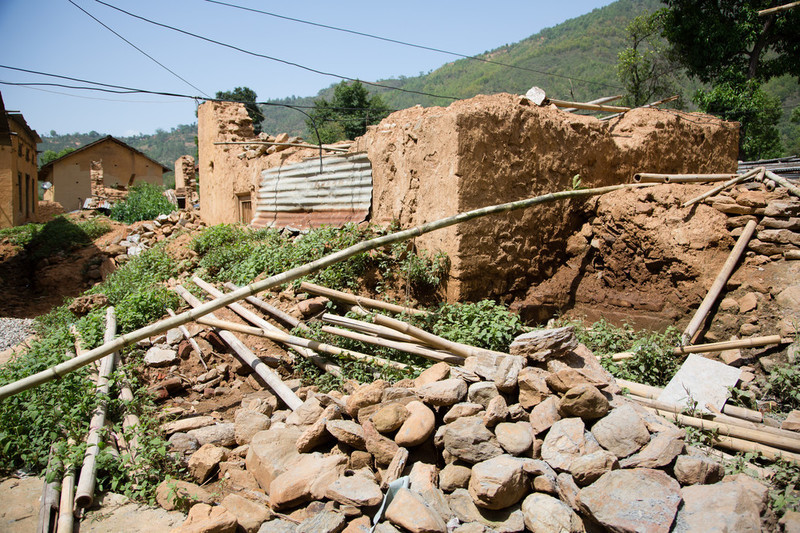
Continuing contraception services and women's health in the wake of disaster, Nepal
Just before midday on Saturday 25 April 2015, a 7.8 magnitude earthquake shook Nepal, causing massive devastation and loss of life. It was the worst natural disaster to strike the country for 80 years – and one the country is still recovering from. Three million people were displaced, 22,000 were injured and 9,000 people lost their lives. According to UNDP, 800,000 homes, were damaged or destroyed. A Nepalese government assessment in 2015 estimated the cost of damage, loss and reconstruction to be $14.6 billion – around three quarters of the country’s entire gross domestic product for 2015 The stories of survivors are harrowing. Twenty-two-year-old Anjana Suwal spent five hours trapped in the rubble of her family’s house. “I was thinking to myself: this is going to be the end of my life: I won’t survive,” she says. “I could hear sounds from outside and I began shouting and shouting, but no one heard me. My throat began to get sore and eventually I couldn’t make any more sounds: I felt so hopeless.” Others speak of their desperate searches to find their children, alongside bittersweet gratitude that the earthquake had occurred on a Saturday rather than an ordinary school day, when the loss of life could have been far higher. The effect on healthcare and family planning was severe. Clinics and hospitals were destroyed and those that survived quickly became overcrowded and had turn away hundreds of injured patients. Millions of people were forced from their homes into tents, often many miles from their usual clinics and family planning centres. Women, girls and orphans were particularly vulnerable: living in tents exposed them to sexual violence, while menstrual hygiene and basic cleanliness in the searing April heat became a struggle. “There was always the fear of getting abused,” says FPAN volunteer Rita Tukanbanjar, who spent 20 days living in a tent after the earthquake. Hitting the ground running When the earthquake struck, FPAN lost no time in taking action. The first job was to do a needs assessment. Then, within 48 hours, FPAN had set up mobile health camps across the country, providing family planning services as well as general health check ups. The team offered essential items like oral rehydration, medicines, food and water. They also distributed contraception and dignity kits, provided women with antenatal checks, and set up blood-testing labs and psycho-social counselling services. Women- and children-friendly spaces provided a haven for the most vulnerable to retreat to in safety. The organisation also organised classes on menstrual hygiene and taught women and girls how to make sanitary pads from scratch. “During that time, girls were facing a lot of problems maintaining their menstrual hygiene,” explains FPAN volunteer Rita Tukanbanjar. “All the shops and services for menstrual hygiene were closed.” FPAN’s classes provided a vital service to women and girls, as well as valuable knowledge for life after the emergency response. Up in the mountains of Rasuwa, close to the border with Tibet, FPAN ran a three-month mobile health camp, providing basic healthcare and family planning services. Equipped for future disasters FPAN, like Nepal, still has visible earthquake damage. “Most of our service delivery points in the Kathmandu Valley are still damaged,” says Sharad Kumar Argal. But amid the tragedy and loss of the earthquake, the impressive and efficient emergency response it galvanised has left FPAN in a much stronger position, should another natural disaster strike Nepal. It also mobilised a huge number of young people to help: many of these volunteers are still working for FPAN, delivering vital sexuality education and community home-based care services.







